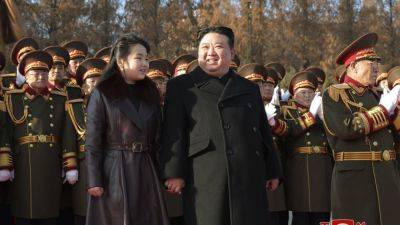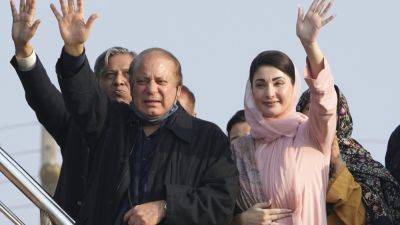Air pollution and politics pose cross-border challenges in South Asia
LAHORE, Pakistan (AP) — The air smells burnt in Lahore, a city in Pakistan’s east that used to be famous for its gardens but has become infamous for its terrible air quality.
Toxic smog has sickened tens of thousands of people in recent months. Flights have been canceled. Artificial rain was deployed last December to battle smog, a national first. Nothing seems to be working.
Lahore is in an airshed, an area where pollutants from industry, transportation and other human activities get trapped because of local weather and topography so they cannot disperse easily. Airsheds also contribute to cross-border pollution. Under certain wind conditions, 30% of pollution in the Indian capital New Delhi can come from Pakistan’s Punjab province, where Lahore is the capital. There are six major airsheds in South Asia, home to many of the world’s worst polluted cities.
Experts are calling for greater cross-border cooperation among countries such as Pakistan, Bangladesh and India to address air pollution together rather than working in silos on a city-by-city basis. But it’s a tall order when political relations in the region are fraught.
Ties between India and Pakistan are broken. Their interactions are riddled with animosity and suspicion. They have fought three wars, built up their armies and developed nuclear weapons. Travel restrictions and hostile bureaucracies largely keep people from crossing the border for leisure, study and work, although the countries make exceptions for religious pilgrimages.
“There’s a recognition among the technical and scientific community that air pollution doesn’t need a visa to travel across borders,” said Pakistani analyst Abid Suleri, from the nonprofit Sustainable Development Policy Institute. The







